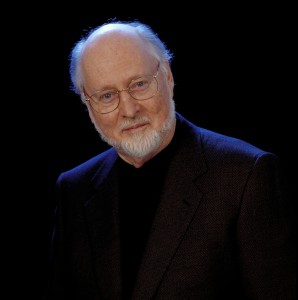John Williams Conducts His Music with the Symphony
The San Diego Symphony went for the best of both worlds Friday (Dec. 7) when they brought in John Williams to guest conduct a program of his own music. Easily the most recognized and acclaimed living film composer, Williams has also established himself as a significant orchestral composer, although acclaim has not yet attached itself to this facet of his persona.
Williams’ program divided neatly into familiar excerpts from his beloved film collaborations with Steven Spielberg—“Star Wars,” “E.T. the Extra-Terrestrial,” “Schindler’s List,” “Harry Potter,” and the recently released “Lincoln”—and two of his works for cello and orchestra, the Cello Concerto and Elegy.
Written in 1994 for Yo-Yo Ma, the Cello Concerto is an expansive, well-organized single movement work that gives the soloist an unrelenting, constantly engaging role filled with bravura flights and challenges. Yes, it would have been a treat to hear Ma perform “his” piece, but with the 33-year-old German-Canadian cellist Johannes Moser as soloist, I did not feel shortchanged in the least.
Flaunting his brilliant, well-controlled technique, Moser sailed through every challenge, bathing even the most intricate passages with a rich, vibrant sonority throughout the range of his instrument. Whether battling the full orchestra or filling the quiet hall in both of his cadenzas, he sculpted each phrase with agility and a keen sense of direction. At the concerto’s conclusion, Williams made it clear how much he appreciated Moser’s mastery of the piece.
Unlike the Erich Korngold Violin Concerto, where the stringing together of neat, tuneful themes won’t let the listener forget the composer’s indenture to motion pictures, Williams’ thematic writing in his concertos loses all the film composer’s identifying fingerprints. Angular, asymmetrical motifs, thematic development and a satisfying lack of predictable turns make the Cello Concerto a welcome addition to the contemporary canon.
Beneath the surface of this single movement concerto is a suggestion of the traditional four-movement symphonic form. After the opening material is revealed, a quieter, contrasting mood ensues that called to mind the mysterious Bartók “night music” passages. This is followed by a more animated, scherzo-like section and then an energetic, conclusive finale.
The short Elegy for Cello and Orchestra, played as an encore to the Cello Concerto, struck me as the rhapsodic, major mode cousin to the Theme from “Schindler’s List,” which featured the sensitive solo work of concertmaster Jeff Thayer.
The various motion picture themes need no description, but the orchestra deserves ample praise for giving such robust and clean[php snippet=1] interpretation to these familiar touchstones of the Spielberg catalogue. Kudos to all the brass players, especially the trumpets, for their sustained brilliance. An entire evening of Williams can be as taxing on the brass as a Richard Strauss marathon, and they were more than up to the challenge. Keyboard player Mary Barranger, who spent the night flitting between the piano and the celesta, and harpist Julie Ann Smith provided the two colors without which most Williams scores would crumble, and they did so with aplomb.
On the podium, Williams eschews flash and showmanship. He is completely focused on what he wants the musicians to bring out in his music, and his cues are clean and direct. He had many years to refine his technique at the helm of the Boston Pops, and his relaxed confidence was a joy a observe.
According to the management, this all-Williams concert sold out Copley Symphony Hall. I hope that those who came to see a famous personality will return to hear more of the symphonic repertory to which John Williams also contributes with all of the skill and inspiration that has won him his many Oscar and Grammy awards.
[box] John Williams In Concert with the San Diego Symphony. December 7 & 8, 2012.
Copley Symphony Hall, 850 “B” St., San Diego 92101
Tickets: $20 – 95; 619.235.0804; www.sandiegosymphony.com
Next concerts: Symphonie Fantastique with Music Director Jahja Ling and guest pianist Jeremy Denk, December 14-16, 2012.[/box]

Ken Herman, a classically trained pianist and organist, has covered music for the San Diego Union, the Los Angeles Times’ San Diego Edition, and for sandiego.com. He has won numerous awards, including first place for Live Performance and Opera Reviews in the 2017, the 2018, and the 2019 Excellence in Journalism Awards competition held by the San Diego Press Club. A Chicago native, he came to San Diego to pursue a graduate degree and stayed.Read more…



